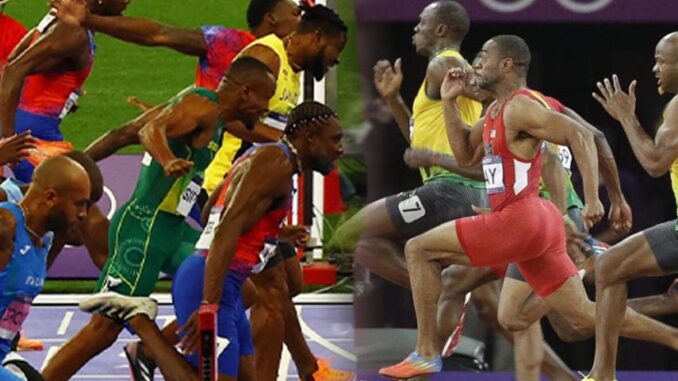
When Usain Bolt speaks, the world of athletics listens. The eight-time Olympic gold medalist and world record holder has once again sparked a major conversation in track and field after delivering a blunt assessment of why today’s generation of sprinters has yet to match the golden era that he dominated. In a candid discussion with reporters, Bolt did not hold back as he explained why athletes such as Noah Lyles, Kishane Thompson, and Oblique Seville have not yet scaled the same heights as he, Yohan Blake, Asafa Powell, and Justin Gatlin did during the 2008–2017 era.
Bolt’s first point was mental toughness. According to him, the difference between champions and record-setters lies as much in the mind as it does in the body. “I watch these guys, and they are talented, no doubt,” Bolt said. “But you need that killer instinct, that belief that you can dominate anybody on the track, every single time you line up. We had that. I had that. Right now, I don’t always see it.” Bolt suggested that while the physical performances of today’s stars are impressive, there is often inconsistency, with sprinters struggling to reproduce world-class times across multiple meets in a season.
Another factor Bolt highlighted was the level of competition during his era. He reminded fans that during his peak years, he was consistently racing against world-class athletes like Blake, Tyson Gay, Powell, and Gatlin—each capable of running sub-9.80 seconds in the 100m. “Iron sharpens iron,” Bolt said. “When you know the guy in the next lane can run 9.7 or faster, it forces you to bring your A-game every time. That’s what pushed me to world records.” Today, he argued, the depth of competition is slowly coming back, with young stars like Kishane Thompson and Ferdinand Omanyala showing promise, but the field is not yet as consistently stacked as it once was.
Training and discipline were also at the heart of Bolt’s remarks. He was clear that raw talent alone is not enough, and that some modern athletes get distracted by fame, endorsements, and social media. “You have to live and breathe the sport. Partying and posting are fine, but if you want to be the greatest, you sacrifice,” Bolt said, recalling how he dedicated years of his life to maintaining peak form under coach Glen Mills.
Despite his blunt words, Bolt was quick to clarify that he is rooting for the next generation. He praised Lyles’ charisma and Thompson’s smooth sprinting style, calling them “the future of the sport.” However, he challenged them to chase greatness rather than just medals. “Records are there to be broken,” Bolt reminded them. “But you have to want it more than anyone else.”
Bolt’s comments serve as both a critique and a challenge—an open invitation for today’s stars to prove they can rise to the level of consistency, dominance, and global spectacle that defined his own career. Whether they can answer that challenge remains to be seen, but one thing is certain: the sport is better for having Bolt still pushing it forward, even in retirement.
Be the first to comment